Issue 126 : 9 April 2023
Talofa Lava, Kia Orana, Malo E Leilei, Tena Koutou, Hello ...
... and welcome to the latest issue of “For The Love Of The Game”, the official e-zine of the New Zealand Amateur Sport Association Inc., founded in Wellington, New Zealand in 2017. We hope that this Easter weekend is providing an opportunity to enjoy the company of family and friends.
If you have any feedback on this issue, ideas for future articles, or would like to contact the Editor, please click here. And, you are invited to forward the e-zine to others you know, who may be interested in reading it. An archive of earlier editions of the e-zine can be found here.
For those who follow Twitter, you can also follow the Association, @AmateurSportNZ. If you are interested in applying for membership of the Association, please click here.
Survival Of Grassroots Clubs Agreed As Essential ...
In a recent meeting between the Association and the Minister of Commerce & Consumer Affairs at Parliament, it was agreed that the survival and future growth of New Zealand’s over 7,500 community sport clubs (mainly incorporated entities) should not be impeded by the new Incorporated Societies Act 2022 and its supporting regulations.

(Dr. Duncan Webb and Gordon Noble-Campbell)
While the Association’s Chairman (Gordon Noble-Campbell) and the Minister (the Hon. Dr. Duncan Webb) agreed that the new legislation was a necessary evolution of the 1908 Act, both also agreed that it was important that overall, the reform was fit for purpose for incorporated community sport organisations (ICSOs), and that all necessary steps should be taken to ensure compliance with the new law was achievable.
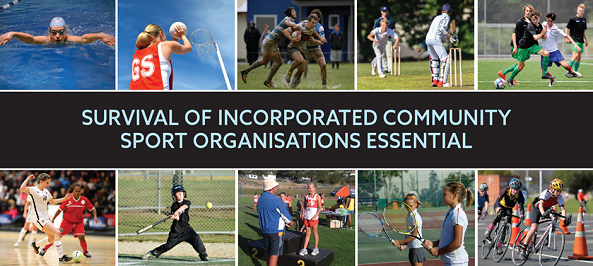
While public consultation on the new regulations has been cancelled owing to Ministry resource constraints, the Association believes that the Minister fully understands the importance of ensuring that the implementation of the new law must not compromise the existence of New Zealand’s many thousands of incorporated community sport entities.
20th National Sport Club Survey Workshop ...
On 27 March in Christchurch, the National Sport Club Survey project team presented their 20th regional workshop since the inception of the survey in 2018. The survey is a unique longitudinal study, which explores contemporary trends in our local community sport clubs, providing insights in respect of both challenges and opportunities. The workshop in Christchurch followed similar events in Dunedin and Timaru the previous day. Our sincere thanks to Sport Otago, Sport South Canterbury and Sport Canterbury for their hospitality and support.
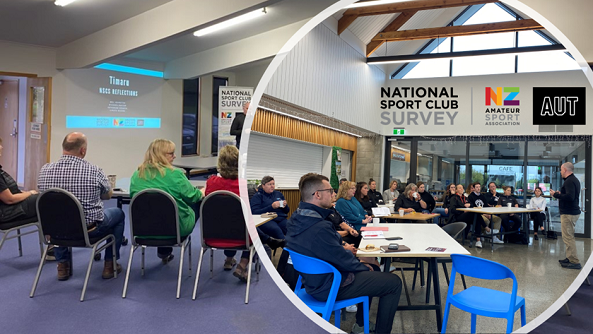
(The National Sport Club Survey is now in its sixth year)
The survey is a partnership between the Association and AUT SPRINZ. The sixth annual survey (scheduled for August 2023), will focus on four emerging thematic areas: integrity; disability sport; casualisation of sport participation and the critical intersection between schools and clubs.
Wellington Cancels Community Sport Awards ...
Nuku Ora (formerly known as Sport Wellington), organisers of the "Wellington Sport and Recreation Awards", have cancelled the 2023 event, traditionally delivered in June, “to enable a robust consultation and review process to take place”. The review is intended to establish how future events might be structured and delivered to ensure Nuku Ora’s diverse range of stakeholders and communities are represented.

Noting that social recognition is a significant motivating factor for community sport participation, Wellington's neighbouring “Hutt Valley Sport Awards”, (annually attracting over 1,300 attendees) will continue in 2023 as a widely supported and popular example of community pride in sporting achievement. The event is reported to be the largest of its kind in New Zealand.
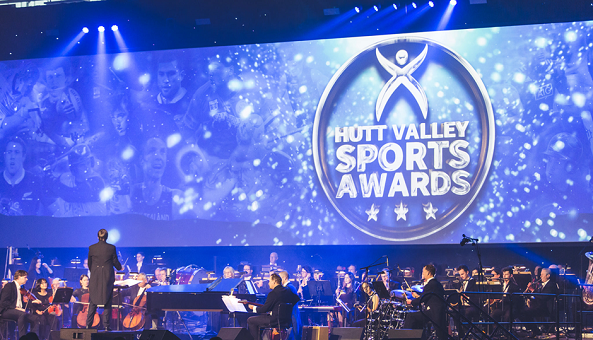
(While Wellington's awards are cancelled, Hutt Valley's awards are continuing)
How The Cost-Of-Living Crisis Is Leading To Fewer Kids In Sports ...
A recent media report has found that the cost-of-living crisis in New Zealand is resulting in “quieter sports greens, emptier courts and fewer teams”. The report found that the cost of travelling to events, accommodation, use of facilities (particularly council-owned ones) and the cost of equipment were all “major barriers” to participation and had a “multiplying factor”, impacting families who had multiple children, hardest.
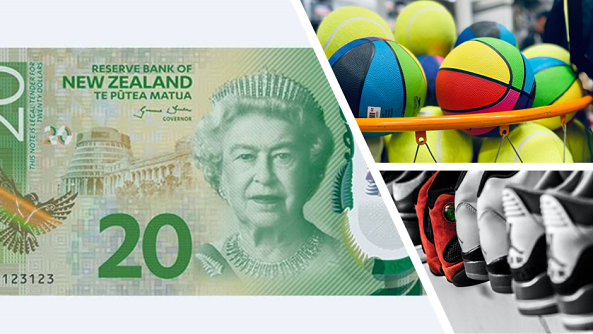
(More can be done to reduce the cost of sport participation for Kiwi children)
In Australia, “Sports Voucher” programmes (known variously as “Active Kids”, “FairPlay” and “Get Active") are offered in all States and Territories of the Commonwealth, providing up to A$150 per child for membership, registration or participation fees, every calendar year.
The aim is to increase the number of children participating in physical activity by helping to reduce cost as a barrier. Importantly, vouchers are provided to families, with participating clubs obliged to meet minimum operating requirements. A similar programme in New Zealand should be a Government priority. You can read the full report here.
Viewpoint: “Why Trophies Matter” ...
In 2006, a study published by the University of Zurich and Centre for Research in Economics, Management and the Arts in Switzerland observed that, “the demand for awards relies on an individual’s desire for distinction, and the supply of awards is governed by the desire to motivate.” In other words, remove the “desire for distinction” and the “desire to motivate” and the necessity for awards evaporates.

(The University of Zurich and Centre for Research in Economics, Management and the Arts)
The study notes that individuals have an innate desire to distinguish themselves from other individuals; people have a strong urge to be better than others; and the quest for social distinction is taken to be a hard-wired trait of human nature. This is said to be particularly true of homogenous, egalitarian societies, where social distinctions are less visible.
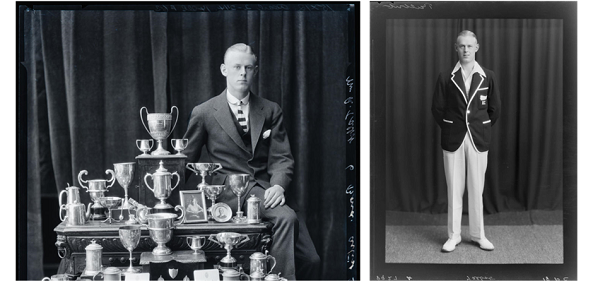
(Awards boost social distinction, while also representing achievement of ideals)
Trophies with history and meaning generally invoke higher degrees of competitiveness and mutual respect for the rules of the game, (and the skills exhibited by players within these rules). Trophies are therefore not "objects", but are "representative of ideals", awarded to those who best mirror them when in a competitive sporting environment, (and who carry these values into their daily lives, outside of sport). You can read the full study, here.
“Lenin” or “Lennon”? – (Thoughts On A Possible Revolution) ...
In a recently published paper promoted by Sport New Zealand and the New Zealand Government (in which the opinions expressed are said to be “not necessarily those of Sport New Zealand”), various factors are suggested as reasons why community ownership of sport through incorporated societies may no longer be a valid governance framework.
Quoting words ascribed to Russian revolutionary Vladimir Ilyich Ulyanov Lenin in 1918, the paper suggests that the COVID-19 pandemic is the contemporary tipping-point from which revolutionary change in community sport governance is now perhaps inevitable.
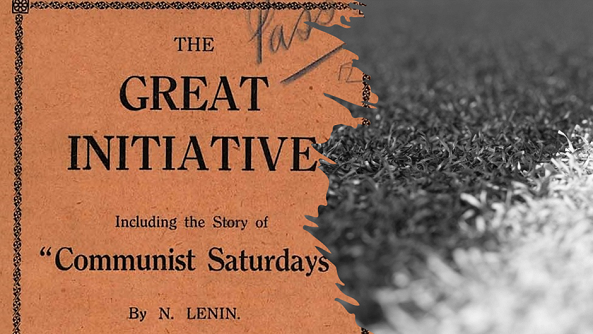
(Is a revolution underway in terms of community sport governance and ownership?)
Highlighting the recently legislated complexity of the governance model for incorporated community sport organisations, the paper states that, “we find ourselves with political systems based on 18th-century philosophy, run with 19th-century administrations, built on 20th-century technologies, attempting to confront 21st-century challenges.” In defining the cause of contemporary governance issues for community sport to be that of a “political system”, the paper perhaps conflates (and unnecessarily politicises) issues relating to community ownership and governance of New Zealand sport.

(The “political system” is not the cause of complexity for incorporated sport entities)
Rather than confronting the specific issues of overbearing corporate governance obligations on volunteer-led community organisations (which are often asset-rich, yet cash-poor), the paper seems to discount the important (and clearly bourgeois) notion of local clubs retaining direct ownership of their assets, independent control of their activities and preservation of their sovereign identities.
For example, the paper suggests that, “local volunteer managed clubs … merge or amalgamate or ... change the structure in order to remove what will otherwise be a significant burden on them under the new Act.” While some clubs may be forced into doing so, this ex-post capitulation is a poor excuse for a lack of representation by sport’s leadership bodies at the time that the incorporated societies legislation was progressing through the reform process.
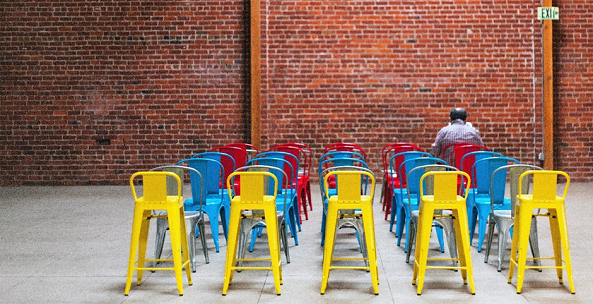
(The legislative solution must be to ensure volunteer chairs are filled, not emptied)
The Association stresses that the essential status of community sport entity incorporation is not the issue; rather, it is the specific obligations under the new Act now placed on incorporated community sport entities to maintain this legal status that is of overriding concern.
In our recent meetings with Ministers and officials, we have emphasised the need for further regulatory consideration and support for incorporated community sport clubs. (In passing, we note that in 2020, the Association was informed that incorporated community sport clubs did not form part of the strategy for sport delivery by New Zealand’s crown agency for sport).
In the Beatles' 1968 hit single "Revolution", John Lennon wrote, “you say you got a real solution. Well, you know. We'd all love to see the plan”. Unlike the social activists of 50 years earlier, the Beatles' idea of revolution was not to imperil or up-end existing social structures while promoting social change. In a similar way, legislative reform should aim to avoid unintended consequences, rather than force a radical response to them once they become apparent.
While the paper notes that, “several experienced sector practitioners were interviewed for background and perspective”, the Association was not approached for input or comment.
Annual General Meeting Reminder ...
The seventh Annual General Meeting of the Association will be held at 5.30pm on Tuesday, 18 April 2023 in the Scott Room of the Wellesley Club, Maginnity Street, Wellington. Members unable to attend in person are welocome to join by ZOOM, by contacting the Association here.
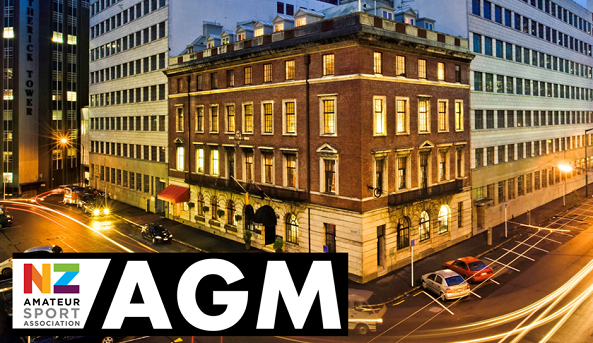
From The Archives ...
RIFLE SHOOTING
AUCKLAND STAR, VOLUME LXII, ISSUE 97, 27 APRIL 1931, PAGE 14
RANGITAIKI CLUB (From Our Own Correspondent)
WHAKATANE, Saturday
“The Rangitaiki Club fired the second competition for Mr. Line's trophy.
The conditions were 15 shots at 700 yards. Vice-President Wilson was top with 71, Mrs. Moore second with 70. The shooting was of a very high standard, and the two leading scores are easily a record for long-range shooting.”
Mary Ivy Davies (known as Ivy) was born in 1905, the eldest daughter of David (Kahawai) and Lena Davies of Taneatua, one of 11 children. She married Willie Moore, a surveyor and World War One (gunner) veteran in 1927, with whom she raised four girls and two boys in Thornton in the Bay of Plenty, where they farmed.
Before the war, Willie was a member of the Akarana Rifle Club, (based at Shoal Bay), and both Willie and Mary joined the Rangitaiki Defence Rifle Club when it was formed in 1927. Both Willie and Mary were "crack-shots", respectively winning various championship titles.
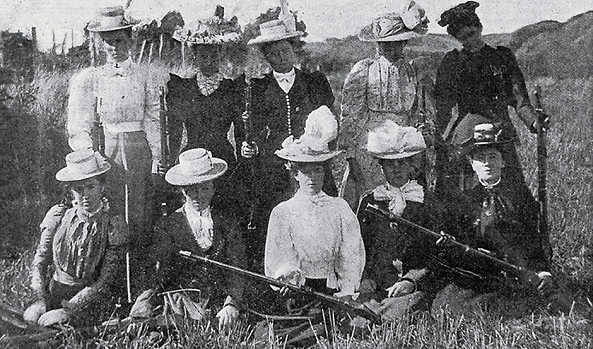
(Women were encouraged to become proficient handlers of firearms for sport)
Ivy fired the first shot on the rifle range built for the new club, registering a bullseye. She became heavily involved in the sport and soon was one of the leading rifle shots in the Bay of Plenty.
At shield matches held annually for teams from Bay of Plenty clubs she topped the score on one occasion. On another occasion, she tied for the grand aggregate for the championship of the Rangitaiki Defence Rifle Club and lost by one point after a shoot-off. She was also runner-up for the Championship Belt, open to all riflemen in the Bay and she was the undisputed champion lady rifle shot in the Bay of Plenty. She was reputed to be one of the best women shots in New Zealand and she was also an expert horsewoman.
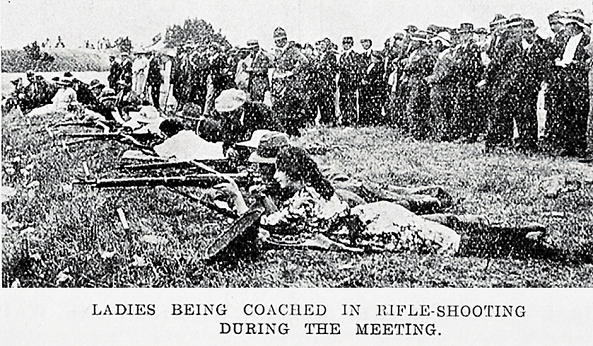
Ivy tragically died from complications in childbirth on 7 June 1944 at Whatakane Hospital at the age of 39, and she is buried in Hillcrest cemetery, Maraetotara, Whakatane.
The Final Word ...
“The most radical revolutionary will become a conservative the day after the revolution.”
(Hannah Arendt)